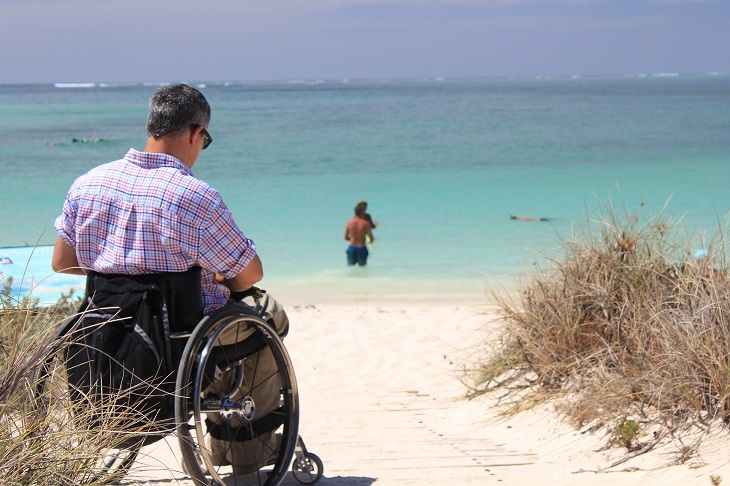A Guide to Disabled Parking in Florida

Florida is the U.S.’s most southerly state, known affectionately around the country as the “Sunshine State,” even though it sometimes experiences bouts of extreme weather. Famous for the neon-soaked beach city of Miami and the thrilling rides of Disney World, Florida is a popular destination for tourists both from other states and other countries, meaning that it sees a lot of traffic pass through its borders. For those disabled people traveling to Florida, they might be wondering what the handicap parking situation is; luckily, this article has all you need to know about disabled parking in Florida.
American citizens with disabilities are largely protected under the Americans with Disabilities Act (or the ADA for short), a piece of federal legislation that protects people with physical or mental handicaps from discrimination in many areas of life. This an incredibly important law that unifies disabled people’s rights under one banner. Unfortunately, federal remit doesn’t extend into the rest of disabled legislation, meaning that handicap parking is governed on a state-by-state basis. The good news is that it doesn’t differ much across the country, meaning that disabled drivers can be reasonably confident that they’re eligible across any of the 50 states.
In terms of Florida, all permits, placards, and license plates are issued through the Florida Department of Highway Safety and Motor Vehicles, via the applicant’s local tax office. Permits are issued to disabled drivers or passengers, or organizations that transport people with disabilities, and come in two types: placards and license plates. Placards can either be permanent or temporary, depending on what type of disability you suffer from; the former is valid for four years, while the latter is valid for up to six months.

Permanent placards are free to apply for, while temporary ones require a fee of $15. Multiple placards can be issued to applicants who travel often or are quadriplegic, or to organizations with multiple vehicles. You can also opt for a license plate, which you can specifically request when you apply for your handicap placard. You can renew the plate the same way you renew your other plates and car registrations, though do remember to give up your existing license plates when you do.
Disabled placards issued in any state are valid in any other state across the U.S., without exception. Even if you’re traveling all the way from Washington to Florida, your Washington permit will be effective in Florida, and vice versa. When it comes to countries outside the U.S., foreign placards should work in theory; however, in practice, that’s not always the case. Some police officers might still issue tickets when faced with a foreign placard, even though it’s valid. The best remedy for this is to apply for a temporary U.S. parking badge. These are issued from the nearest tax office, cost $15, and are valid for 90 days. All you have to present is a doctor’s letter certifying your condition, your passport, and a recent utility bill. Although this might seem like unnecessary hassle, it’s advised by the Orlando Tourist Information Bureau, and could help international visitors avoid a hefty $250 parking fine.
The rules for disabled parking in Florida are simple and largely straightforward. You can only use the placard that was specifically issued to you, and you and your family can only avail of the placard if you’re either a passenger or a driver. If you don’t abide by this strict law, you can face heavy fines and a possible suspension of your disabled parking permit. You must always carry your placard registration document with you, and can only park legally in marked spaces. This means that you cannot park in zones meant for buses or emergency vehicles, striped areas next to disabled spaces, any area labeled “no parking,” or limited time spaces for longer than the designated time.

Applying for a permit is straightforward. You can send an application through the mail or present it in person at any local county tax collector’s office. You’ll need a completed application form, a valid Florida driving license, a medical certification signed within the last twelve months by a certified medical professional, and the appropriate fee for the type of permit you’re applying for. The Florida DHSMV will send you a renewal notice in good time before your placard or plate expires.
In terms of qualifying conditions, applicants for disabled parking in Florida must be certified as legally blind; be unable to walk without the assistance of another person or by means of a tool such as a crutch; meet specific requirements of lung disease; use portable oxygen; use a wheelchair on a permanent basis; be restricted by a cardiac condition; or be suffering from severe limitations in the ability to walk. These qualifying conditions are a little more restrictive than some other states, but not by much. All in all, disabled parking in Florida should be a straightforward affair if you follow the guidelines, leaving you enough time to move around freely and fully enjoy the Sunshine State!